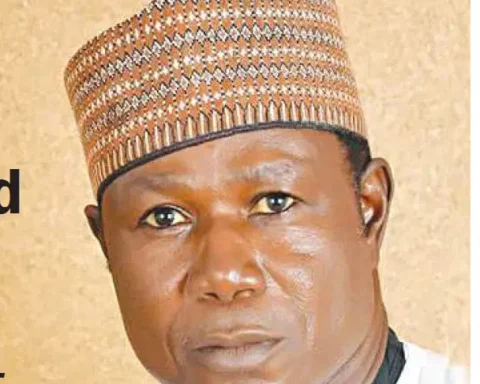Abuja, Nigeria – In a bold step to address the escalating impact of climate change and recurring natural disasters, the Federal Government of Nigeria is considering the establishment of a National Flood Insurance Scheme (NFIS). This initiative, announced during a high-level climate resilience forum in Abuja on Wednesday, aims to provide financial protection to citizens, especially farmers and low-income communities, who are increasingly vulnerable to flood-related losses.
The move comes in the wake of devastating floods in 2022 and 2023, which displaced over 1.5 million Nigerians, destroyed farmlands, and caused billions of naira in property damage. According to the Nigerian Meteorological Agency (NiMet), this year’s rainfall projections suggest that more than 30 states remain at high risk of flooding.
Minister of Humanitarian Affairs and Poverty Alleviation, Dr. Betta Edu, confirmed that the government is working in partnership with the Nigerian Insurance Association (NIA), the National Emergency Management Agency (NEMA), and global climate finance organizations to develop a framework for the scheme.
“Floods are no longer seasonal inconveniences — they are national emergencies,” Dr. Edu said. “A National Flood Insurance Scheme will help vulnerable communities recover faster and reduce the long-term burden on government relief efforts.”
The proposed NFIS will offer subsidized premiums for farmers, small businesses, and homeowners in flood-prone areas. It will be operated under a public-private partnership model, with insurance firms underwriting the risk while the government provides regulatory oversight and partial funding.
Key features of the proposed scheme include:
Affordable premiums for rural dwellers and smallholder farmers
Compensation for crop loss, property damage, and temporary displacement
Integration with Nigeria’s disaster early warning systems
Access to quick-disbursing emergency funds post-flood.
Experts and stakeholders have welcomed the idea, though they caution that implementation must be transparent and data-driven.
Dr. Okechukwu Obi, a climate risk consultant, said: “This is a progressive step, but we need a solid actuarial base. Flood maps must be accurate, and enrollment should be digital and inclusive. We don’t want another subsidy-style corruption loophole.”
Farmers’ cooperatives and rural advocacy groups expressed relief at the announcement. Halima Musa, a rice farmer from Lokoja who lost her entire harvest last year, told reporters: “If this insurance had existed before, we wouldn’t have gone into debt just to buy food.”
The National Assembly is expected to debate a Flood Insurance Bill in the coming months, which would provide legal backing for the program and establish a National Flood Insurance Trust Fund.
Senator Ayo Bamidele, Chair of the Senate Committee on Environment, said: “We cannot afford to keep reacting to floods. Insurance is a preventive financial tool, and it must become part of Nigeria’s national adaptation strategy.”
With climate change intensifying and flood disasters becoming more frequent, the proposed National Flood Insurance Scheme could serve as a blueprint for other African nations facing similar environmental and economic vulnerabilities.
Still, much depends on political will, accurate data collection, and ensuring the scheme reaches those who need it most.
For now, Nigerians are watching — and hoping — that the waters won’t rise again before the protection they need is in place.
Follow us on all social media platforms @dailyquery for news and analyses around the globe.



























